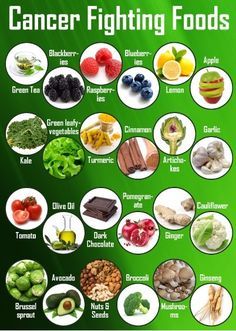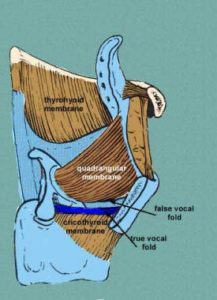
Diagnosed with Cancer? Your two greatest challenges are understanding cancer and understanding possible side effects from chemo and radiation. Knowledge is Power!
Learn about conventional, complementary, and integrative therapies.
Dealing with treatment side effects? Learn about evidence-based therapies to alleviate your symptoms.
Click the orange button to the right to learn more.
- You are here:
- Home »
- Blog »
- side effects ID and prevention »
- Laryngeal Cancer – Stage 2- Conventional vs. Non-Conventional Therapy?
Laryngeal Cancer – Stage 2- Conventional vs. Non-Conventional Therapy?

If you can combine both conventional therapies (surgery) with an evidence-based non-conventional therapy you many be able to obtaining both quality of life (singing) and quantity of life (living).
Hello Cancer Coach-I have a stage 2 laryngeal cancer tumor on my right vocal cord. I am a 67 yr. old male who is a professional pianist / singer. I have received a recommendation to take Artemisiinin. What do you think of this and can you shed any light on how I can continue to sing? Thanks- John
Hi John-
I am sorry to learn of your stage 2 laryngeal cancer. My guess is that you are asking about alternative/complementary/integrative cancer therapies in an effort to reduce your risks of damaging your vocal cords. You are correct in thinking that chemo and or radiation may hurt you ability to sing.
On the other hand, stage 2 laryngeal cancer has five year survival rates of 75% depending on your therapies. This is a good five-year survival average. While artemisinin and curcumin have potential (see the links below), it is non-conventional and therefore difficult to study.
I will add that surgical removal of the tumor on your vocal cord is an important therapy for debulking your cancer. Can you have this surgery and still be able to sing? To put is another way, surgery to remove your cancer will improve your 5 year survival rate and will carry less risk of the side effects that chemo and radiation do.
Also, there are a host of evidence-based, non-conventional therapies that, like artemisinin and curcumin, will reduce your risk of laryngeal cancer progression.
I myself live an anti-cancer lifestyle through supplementation, nutrition, etc. and have remained in complete remission since ’99. My cancer is very different from your cancer.
I am saying that if you can combine both conventional therapies (surgery) with evidence-based non-conventional therapies in hopes of obtaining both quality of life (singing) and quantity of life (living).
Click now to learn more about larynx cancer
Let me know if you have any questions.
Thank you,
David Emerson
- Cancer Survivor
- Cancer Coach
- Director PeopleBeatingCancer
Artemisinin: An Alternative Treatment for Oral Squamous Cell Carcinoma
“Artemisinin (AR) is a widely used antimalarial drug. Recently, additional uses for AR as an anticancer drug were discovered. Using TUNEL, immunohistochemistry (IHS) markers and flow cytometry techniques, we evaluated the effect of AR and 5-FU on HPV 16 immortalized and transformed human gingival epithelial (IHGK) cells.
The results of TUNEL showed that AR-treated IHGK cells consisted of 82% positive cells, while 5-FU-treated cells consisted of 18% positive cells. The IHS markers demonstrated positive staining with Bax, p53, CD40 and CD40L in AR-treated cells and negative staining with Bcl-2. 5-FU-treated cells demonstrated a profile similar to AR but with less intensity. Cell cycle by flow cytometry results showed that only 5-FU-treated cells demonstrated a significant S-phase rate increase to 45%. In conclusion, our results indicate that AR is cytotoxic to transformed oral epithelial cells through apoptosis, while 5-FU is cytotoxic primarily through cell toxicity…
“Discussion-Oral squamous cell carcinoma presents a significant health problem that affects over half a million people in the world each year (16). Treatment has traditionally consisted of surgery, with radiation and chemotherapy used as supportive measures (17)…
AR has been shown, through its wide use as an antimalarial drug, to be a non-toxic chemical with minimal or no side- effects. One clinical case report demonstrating the effectiveness of AR on laryngeal cancer has been reported in which a 71-year-old male from India with stage II well- differentiated squamous cell carcinoma responded with 30% reduction in the size of the lesion after two weeks of treatment with 60 mg of artesunate, an AR analog given intramuscularly (21)…”
Curcumin inhibits cell proliferation and promotes apoptosis of laryngeal cancer cells through Bcl-2 and PI3K/Akt, and by upregulating miR-15a
“Curcumin is a natural compound extracted from the dried rhizomes of Curcuma (curcuma root or zedoary) that exhibits extensive pharmacological effects and low toxicity.
The aim of the present study was to investigate whether curcumin inhibits cell proliferation and promotes apoptosis of laryngeal cancer through Bcl-2 and phosphoinositide 3-kinase (PI3K)/protein kinase B (Akt), and by upregulating microRNA-15a (miR-15a).
It was demonstrated that curcumin inhibits cell proliferation, and promotes apoptosis and increased caspase-3 activity of human laryngeal cancer cells. Furthermore, curcumin decreased Bcl-2 and PI3K protein expression, and decreased the phospho (p)-Akt protein expression of human laryngeal cancer cells.
Furthermore, curcumin activated miR-15a expression by human laryngeal cancer cells. Suppression of miR-15a expression reversed the anticancer effect of curcumin on cell proliferation of human laryngeal cancer cells and increased Bcl-2 and PI3K/Akt protein expression in AMC-HN-8 cells treated with 40 µM of curcumin. The results of the present study suggest that curcumin inhibits cell proliferation and promotes apoptosis of laryngeal cancer cells through Bcl-2 and PI3K/Akt, and by upregulating miR-15a…”


